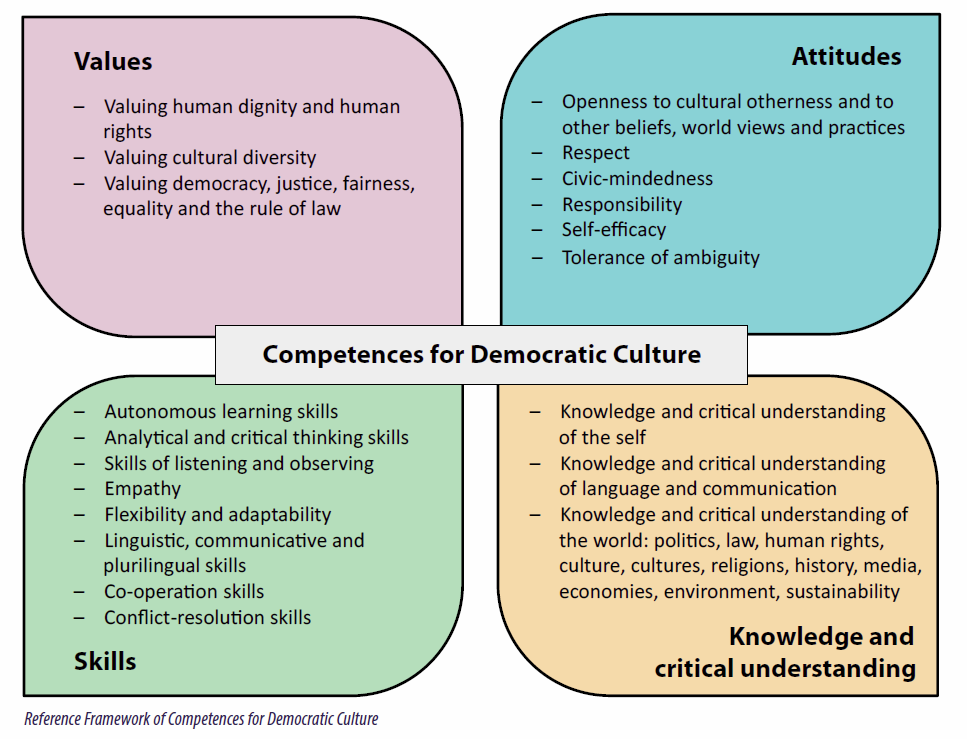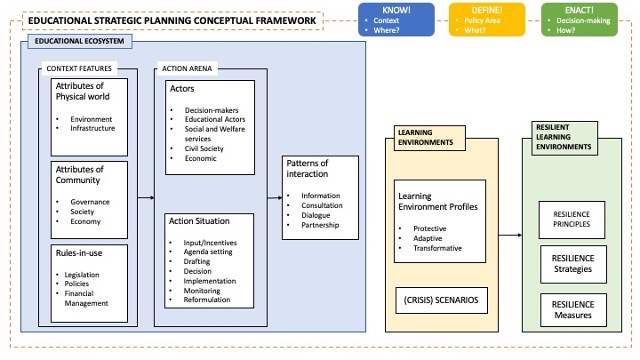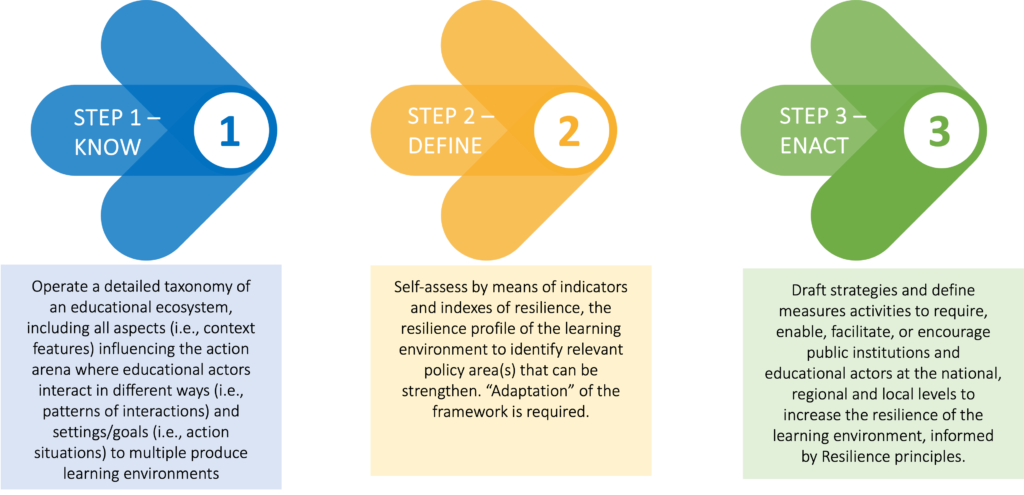The EDURES benchmark takes stock from the work done in developing the Reference Framework of Competences for Democratic Culture (RFCDC) and, in particular, its model of competences. The RFCDC defines “democratic competence” as “the ability to mobilise and deploy relevant psychological resources (namely values, attitudes, skills, knowledge and/or understanding) in order to respond appropriately and effectively to the demands, challenges and opportunities presented by democratic situations”.

In this perspective, in the framework of EDURES, “resilience competence” is the capacity of a learning environment to mobilise and deploy relevant resources in order to respond appropriately and effectively to the demands, challenges and opportunities presented by emergency and crisis situations. Furthermore, as in the case of RFCDC, for EDURES resilience competence in to be considered as” a holistic term consist[ing in] the selection, activation and organisation of “competences” and the application of these competences in a co-ordinated, adaptive and dynamic manner to concrete situations”.
As in the case of democratic competences, also the resources needed for the development of resilience competences can be identified as values, attitudes, skills and knowledge & critical understanding. The interaction and mutual influence of these resources structure resilience competences that, in turn, allow for the self- assessment of the ways in which the learning environment under evaluation implements the 6 Resilience Principles for Education the Council of Europe and, therefore, the elaboration of Resilience Strategies to grant and strengthen the provision of quality and inclusive education for all also in times of emergencies and crisis.
The definition of these competences helps in assessing how a learning environment adheres to the Resilience Principles for Education. This, in turn, supports the creation of strategies to ensure quality, inclusive education even during emergencies and crises. Adopting such approach, allows for the identification of specific resilience capacities that a learning environment should develop in order to foster its resilience at community level.
The development of a conceptual framework tailored to the resilience assessment of educational ecosystems facilitates the understanding of potential areas of impact of EDURES at community level.

The implementation of such conceptual framework is articulated in 3 main steps, as follows:
